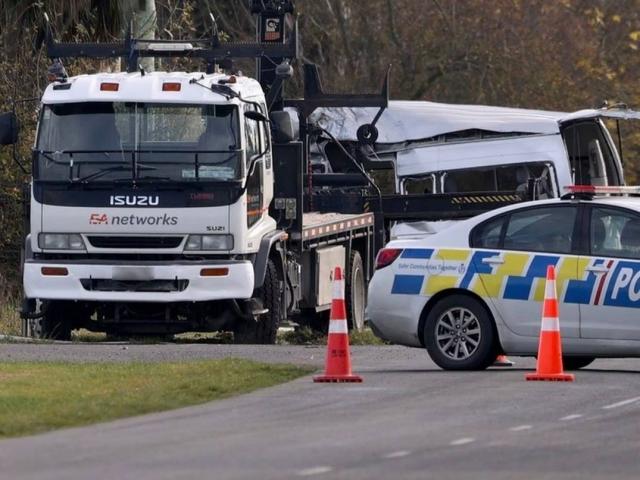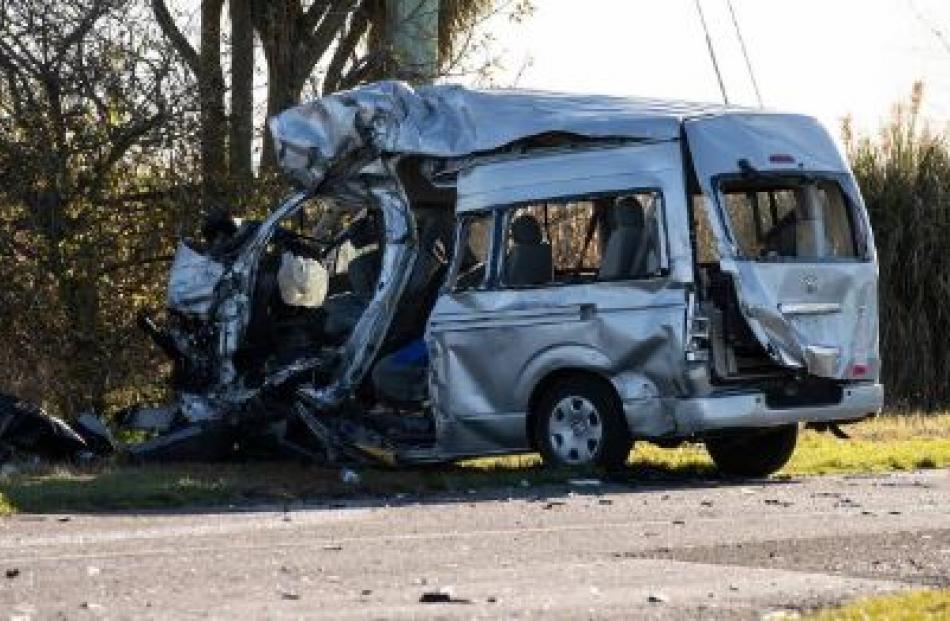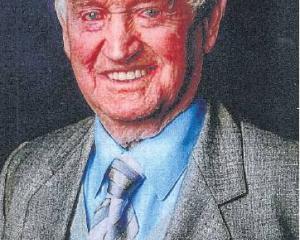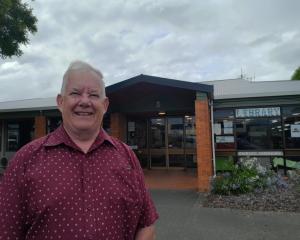Coroner Marcus Elliott said in his findings that the crash illustrated the danger that drivers on long, straight rural roads may not identify the presence of an intersection.
Avinash Chand, the co-owner of Identity Tours Limited, was driving an eight-seat Toyota Hiace van on the morning of June 4, 2021.
Chand had five passengers in his vehicle who were travelling to Gore for the Gold Guitar Awards. Among the group was Sheryll Cairns, 67, who was attending the trip as a caregiver, Jonathan Campbell, 54, and Donald Wallace, 62.
Chand had left home at about 7am to pick up the passengers. At about 9.35am he was driving south on Cochranes Rd, Ashburton, on his way to collect two more people.
At the same time, a truck driver was driving a commercial vehicle west along Wakanui Rd. The driver told police that as he got to the intersection with Cochranes Rd, a van travelling south went through the intersection and into his path.
“I didn’t see the van coming from the side road until it was too late, as any possible sightings to the van was obscured by a large hedge,” he said.
“I didn’t have time to brake but remember trying to swerve to avoid hitting the van.”
The truck collided with the van. Wallace, Chand, and Cairns died at the scene. Campbell died at Ashburton Hospital.
Samples of Chand’s blood were analysed. No alcohol was detected, however, there was evidence of recent use of a kava-plant extract and cannabis.
The forensic toxicologist said cannabis could not easily be classified as a sedative or stimulant since it could have different effects in different people, and its effects generally vary over time.
“The dangers of driving after using cannabis are due to taking longer to respond to events, reduced ability to think clearly, and reduced ability to pay attention. The effects of cannabis may include distorted perception, difficulty in thinking and problem-solving, and loss of co-ordination.”

He said there was “clear visibility” at the time of the crash, but added that as the southbound driver approached the intersection the stop sign tended to blend into the background.
Both cars were likely travelling at or below the road speed limit, and all people were wearing seatbelts.
The officer said it was not possible to evaluate any potential sources of distraction. In relation to the cannabis use, he said that prior to the crash Chand had several interactions with other adults that morning so it was “unlikely that a high level of impairment would have gone unnoticed”.
He said Chand’s lack of awareness of the stop sign and or the intersection was a “causative factor” in the crash. Distraction and intoxication were “possible contributing” factors.
Coroner Elliott said the crash occurred because Chand did not stop at the intersection.
“It is more probable than not that the reason Mr Chand did not stop was that he did not perceive the presence of the stop sign or intersection.”
The coroner said there were several reasons why this was the case, including that it was a “relatively straight road in a rural setting”, and the fact his view of approaching vehicles was restricted by a shelter belt.
The only signage warning of the presence of an impending crossroads was a stop sign at the intersection.
“Even though an oncoming driver’s line of sight to the stop sign was unobstructed, it was difficult to perceive from a distance as it could blend into the background. The sign became more apparent as a driver approached the intersection.
“However, in the absence of a pre-warning sign, a driver would not have been on notice to look out for a stop sign and intersection.”
The coroner said he had no evidence about when Chand had last used kava and cannabis, or the amounts he used. While it was possible it may have impaired his ability to perceive the intersection and stop sign, there was “insufficient evidence” to make any findings.
The Ashburton District Council told the coroner that it considered the signage and markings at the intersection at the time of the crash to be compliant.
Following the crash, advanced warning signs were installed and the stop signs were replaced with larger ones. The road markings had also been repainted.
The New Zealand Transport Agency Waka Kotahi has been carrying out a Rural Crossroads Project to address the safety risks associated with rural crossroads. Given the project was ongoing and that the council had taken steps to address the danger of the intersection, the coroner made no recommendations.
Coroner Elliott said the crash highlighted the danger associated with rural crossroads.

Chand’s brother, Visal Chand, told the Herald his thoughts and prayers went out to the other families.
“I know how hard it is for me and my family.”
He also had a message for people on the roads.
“Keep safe, respect road rules and other motorists out there.”
Campbell lived in Auckland and had been supported by Idea Services for many years. Idea Services Counties area manager Angie Kumar said he was “so well-liked” among his friends and the staff.
“He always enjoyed holidays locally and abroad and was incredibly excited to go on this trip down south in 2021.
“Our deepest sympathies remain with his family, friends, and many of our staff who knew him well and supported him in Auckland.”
By Sam Sherwood














